Kwanzaa Reflection
This article was originally posted on Queensborough Community Colleges website by Nicole McClaim. Click here for the original article.
On Sunday, December 9, Queensborough Community College’s Dance Program presented its first Kwanzaa Celebration. Produced and directed by Adjunct Faculty Kevin McEwen, this program proposed to celebrate the dance students in QCC and our extended community through dance and music.
The concert consisted of seven dance works featuring performances by the QCC Dance Majors, Bautinga Arts, the Kofago Dance Ensemble, the Gloria Eve School of the Arts, and the Nu Gamma Psi Step Squad. The show began with a YouTube video, “The Story of Kwanzaa: From Civil Rights to Corporate America” by Now. Playing this video provided the audience with the history and context of Kwanzaa. Developed by Maulana Karenga in the 1960s, Kwanzaa was an “opportunity to restore unity in black communities” disrupted by riots and tensions between black communities and law enforcement (Butler). It is an African American and Pan-African holiday which celebrates family, community, and culture. Celebrated between Christmas and New Year’s, Kwanzaa takes its name from the language of Swahili and refers to an African harvest celebration (McEwen). Each day of Kwanzaa represents a different principle: unity, self-determination, collective work and responsibility, cooperative economics, purpose, creativity, and faith. The two dance works in the first half of the show featured West African dance with live drumming as though to show Kwanzaa’s African roots through dance.
A medley of dances displaying the African diaspora was the theme of the second half of the show. From step to Afro-Caribbean to contemporary dance, the dances invited the audience to remember our history, to lean on our ancestors, and to celebrate the resilience and adaptability of a people who retained their identity in the face of slavery, Jim Crow, and racism. The second act closes with a finale choreographed by Mr. McEwen and featuring dancers from the QCC Dance Program, Kofago Dance Ensemble, and Bautinga Arts with live drumming. This finale titled Mandiani, which is an initiation celebration dance done by the Mandingo People of Senegal, West Africa (African Heritage Dancers and Drummers), ended the show on an energetic note and reinforced the idea Mr. McEwen stated at the beginning of the show: Kwanzaa is a celebration of the local and extended community.
In his closing speech, Mr. McEwen invited the audience to get out of their respective bubbles and engage with the community around them, especially in academia -the show took place on a college campus. Often the institution isolates itself from its immediate physical and geographical community and prioritizes the intellectual community. Mr. McEwen exemplified that interconnectedness he invited the audience to engage with; he shared that as a teacher, colleague, and student he had a direct connection to every group that performed that evening.
The Kwanzaa Celebration took the audience on a journey from global to local to personal and back out into the community in a multi-sensory experience that appealed to a broad audience. As an experience it lasted long after the dancers and drummers took their final bows. Many of my students in class the next day commented on how much they enjoyed the performance and how they look forward to next year’s production. My eight-year-old daughter sat riveted in her seat for the entire performance, whooping and cheering the dancers on, and immediately wanting to dance once the show ended. It is an auspicious beginning to a tradition that I hope will grow deep roots so that it lives beyond its creator.
“African Heritage Dancers & Drummers Teachers Program Guide -The Dances.” 2002.
Butler, Jennie. “The Story of Kwanzaa: From Civil Rights to Corporate America.” YouTube, 26 Dec. 2016.
McEwen, Kevin. “Kwanzaa Celebration.” Queensborough Community College Dance Program, Department of Health, Physical Education and Dance, 9 Dec. 2018.
– Nicole McClaim


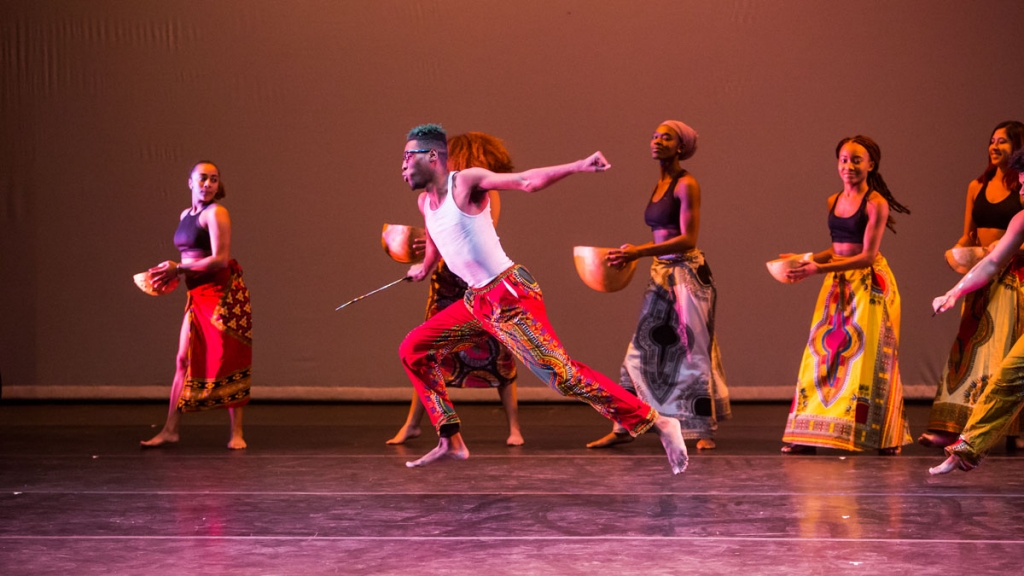
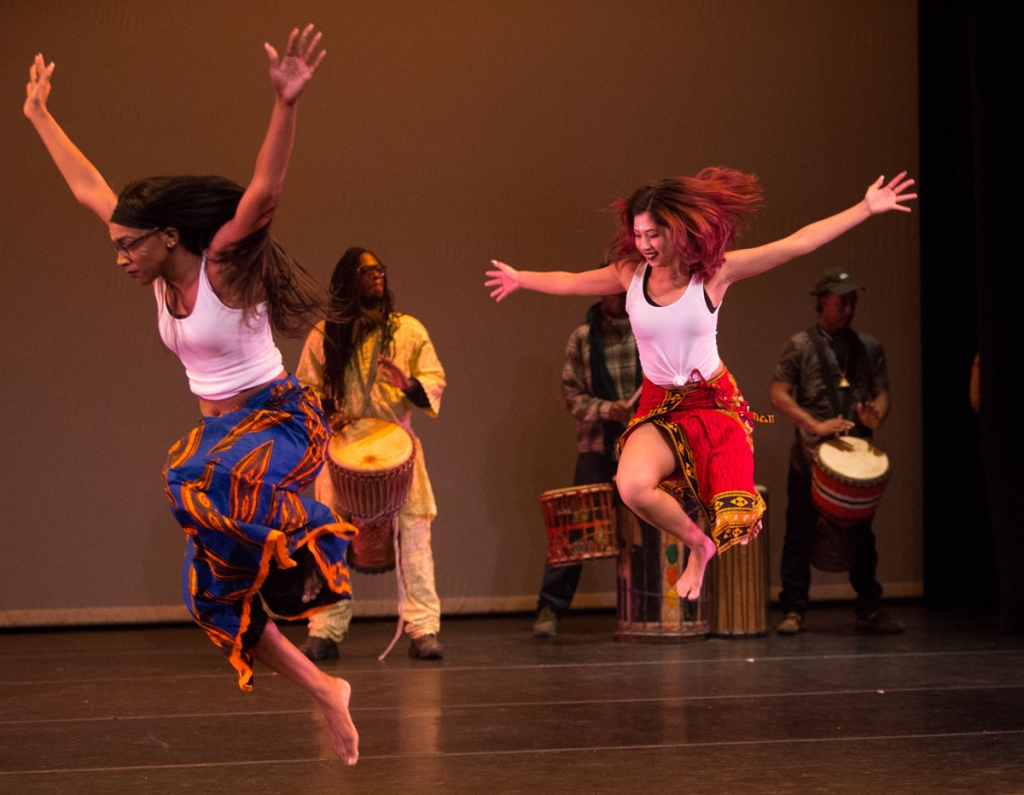
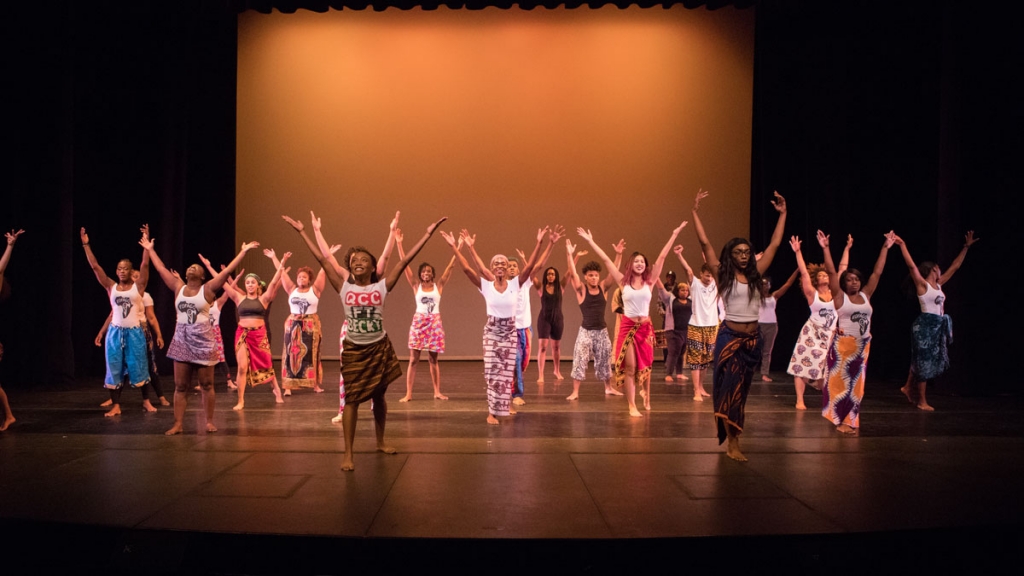
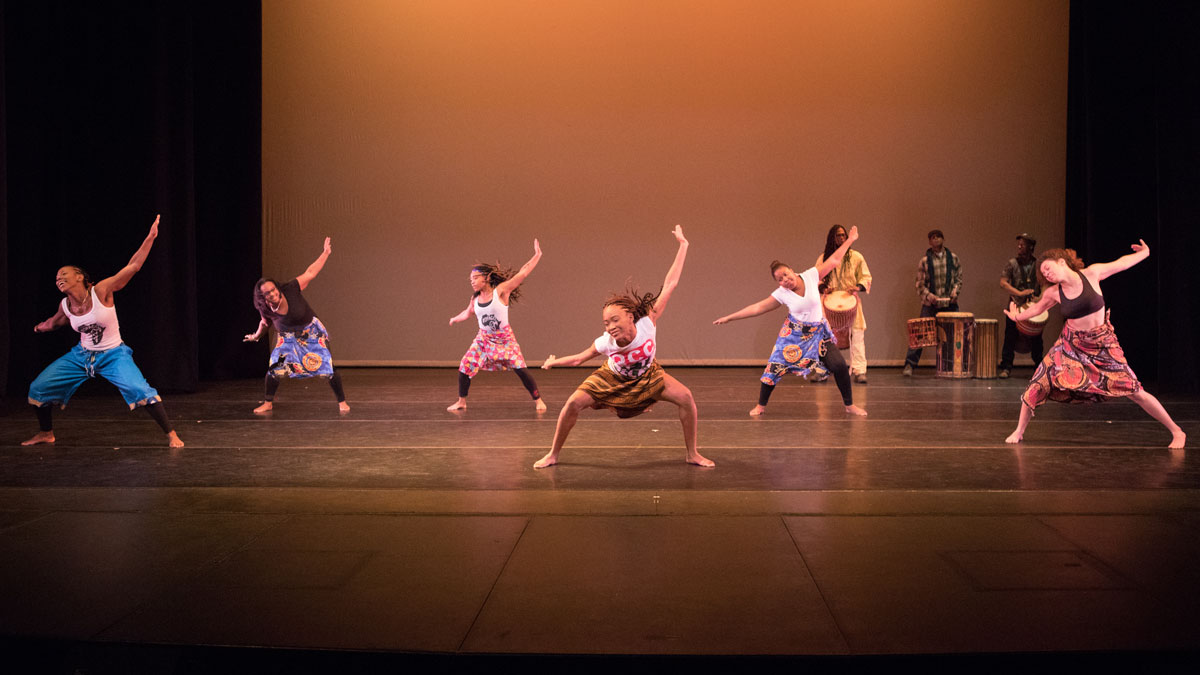
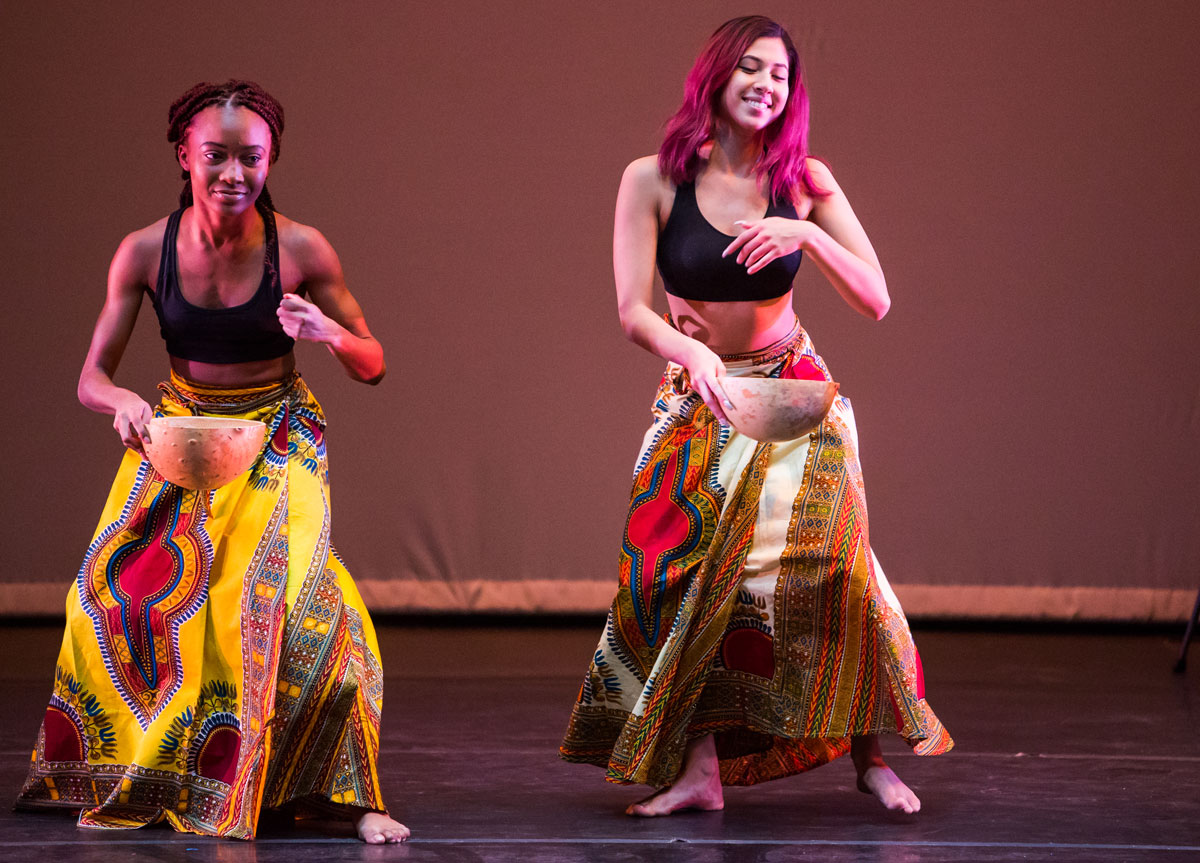

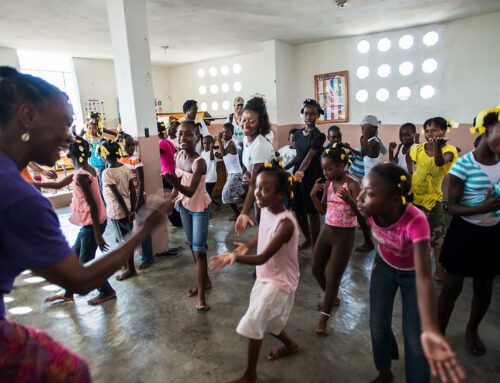
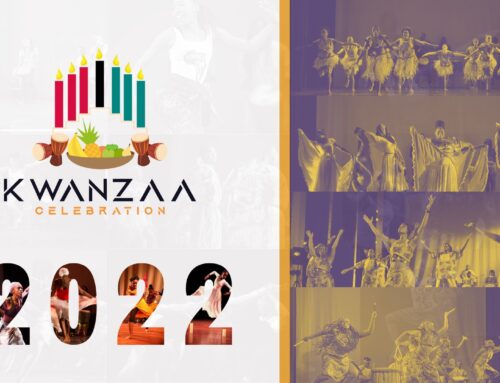
Keep In Touch